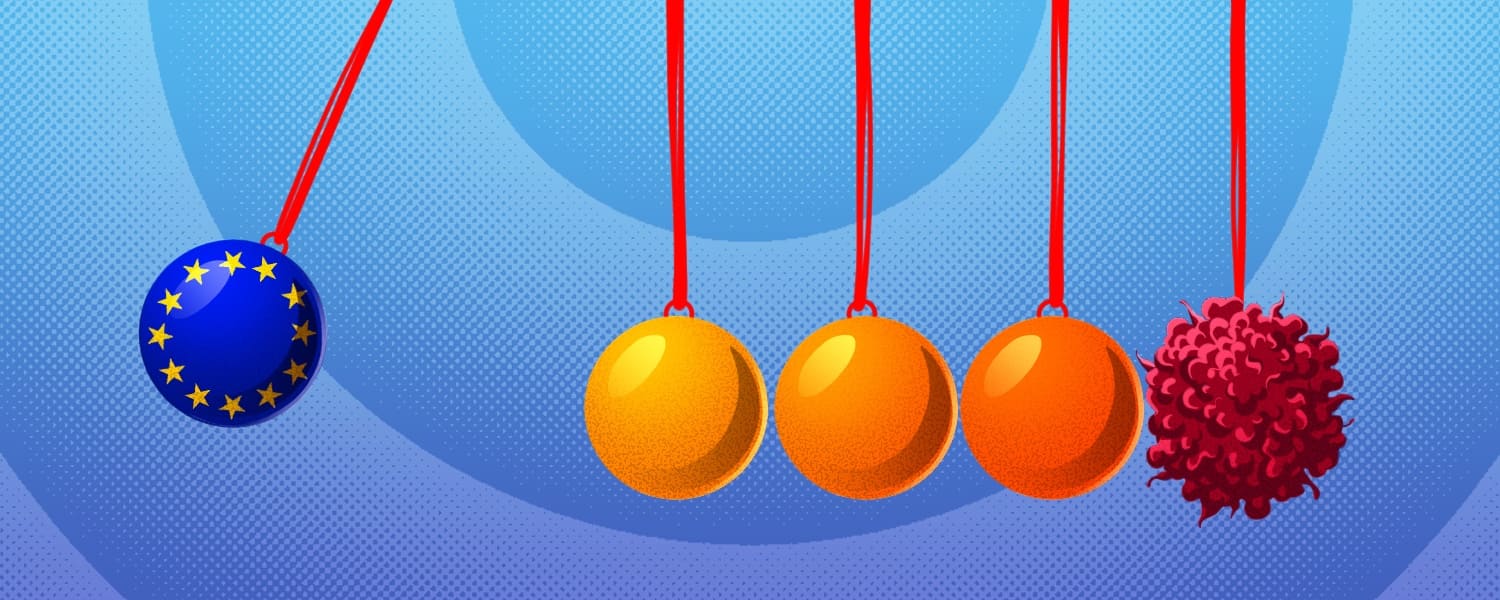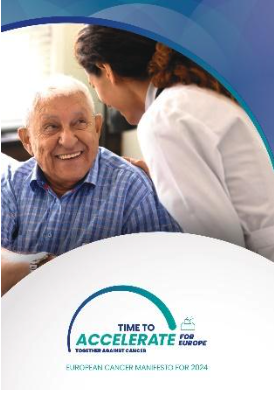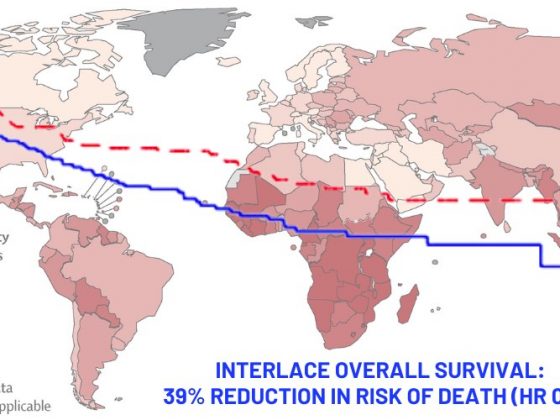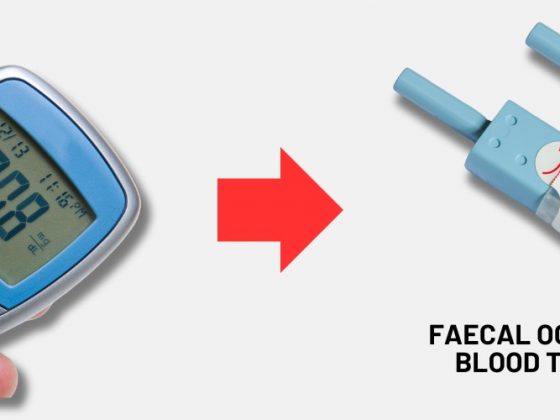“All over Europe new initiatives are being triggered. New communities of action are being formed, from young cancer trainees taking part in interspecialty training together, to cancer centres in every country getting ready to be part of a brand new network of cooperation. New screening plans and initiatives are taking place. And every country is looking at what it can do to eliminate HPV cancer…”
Speaking to a packed European Cancer Summit on November 15th, Richard Price, head of policy at the European Cancer Organisation (ECO), delivered a very upbeat assessment of the state of cancer policy and action across the continent. He was speaking at the launch of the ECO Manifesto, which he argued is needed not because Europe’s flagship Beating Cancer Plan is in any way falling short, but precisely because it is delivering so well on so many fronts and across so many Member States.
With challenges mounting, not least the exhaustion of an overstretched oncology workforce, and with technological progress opening new opportunities, Europe’s cancer community needs to keep its foot on the accelerator, argued Price. Europe goes to the polls in mid-2024, he reminded the participants: we need to be asking every candidate to sign up to the Manifesto and pledge their support for implementing the measures announced in the 2021 Europe’s Beating Cancer Plan, and then to go further and faster.
The ECO Manifesto is a 34-page document presenting detailed demands on a wide range of policy areas that draw on insights from across the cancer community, having been developed through a series of collaborations between 50 organisations.
That collaborative approach, which makes a lot of sense with something as complex and multifaceted as tackling cancer and supporting those affected, has become a hallmark of ECO’s modus operandi. It is also key to achieving the many actions and goals set by the Beating Cancer Plan, said EU Health Commissioner Stella Kyriakides, speaking at the Manifesto launch.
“The Member States and wider cancer community are collaborating closer than ever before”
“When we presented our vision of the Cancer Plan, we wanted it to make a new era in cancer prevention and care. Three years later we can say we are delivering on this. We’ve laid the foundations for a new way of collaborating… The Member States and wider cancer community are collaborating closer than ever before around many projects that will make a long-lasting impact on cancer care across the European Union.”
One flagship action she mentioned is the commitment to establish a network of comprehensive cancer centres – which will use collaboration between cancer centres across Member States to help build and strengthen collaborative, multiprofessional, patient-centred ways of delivering specialist cancer care across Europe.
This and other initiatives are already creating a momentum of their own, she said. “We meet with the ministers of health, I meet with patient organisations, I go to hospitals and oncology centres in all the Member States. And I have seen that [the comprehensive cancer centre network initiative] has triggered a sort of momentum in Member States where such centres do not exist.”
“It is already creating this momentum for us to bring about change. We are seeing for the first time new screening recommendations being rolled out across the EU with ambitious targets for screening to improve early detection…” The Beating Cancer Plan, she added, is now becoming the backbone for countries adopting their own cancer plans, “We need to all work together to make sure that this Plan really does deliver.”
Policies for acceleration
The ECO Manifesto seeks to highlight “opportunities for accelerated EU cancer action” across eleven policy areas, starting with prevention, “the most cost-effective cancer policy”, and continuing on to HPV/HBV vaccination; early detection; equal access to quality care; digital health; combatting inequalities; quality of survivorship; cancer workforce crisis; treatment optimisation; care at a time of permacrisis; and ending with the constructive use of regulation.
Many of the policy asks are presented within the context of the patient rights set out in the European Code of Cancer Practice; all refer to policies that have already been outlined in the Europe’s Beating Cancer Plan and then make the case for measures to speed up implementing those policies, as well as expanding existing goals and raising ambitions. Gilli Spurrier, a leading melanoma patient advocate, and co-chair of the ECO Patient Advisory Committee, described how each one plays an essential role in addressing the many challenges faced by her patient community.
Many melanomas are preventable by lowering exposure to UV radiation – so the inclusion of awareness campaigns on environmental exposure, as well as calls to regulate sunbeds and their eventual phasing out for aesthetic purposes, is important to this community, she said.
But it is also the case that many melanomas are not preventable – that includes some skin melanomas as well as acral, mucosal and uveal melanomas. Added to which, not all preventable melanomas will be prevented. The manifesto policy proposals that matter for this patient community are the ones on improving early detection and access to high-quality treatment. “In a disease in which we still lose more than half our stage IV patients, nothing is more important than early diagnosis,” said Spurrier, “but it’s something we still struggle with in many countries in Europe.” Part of the solution will be technical and technological, she said: “We need [early detection] methodologies and the will to evaluate it properly.”
While catching melanomas early is an important start, inadequate treatment capacity and workforce shortages can deny patients timely access to the quality treatment they need. “Early diagnosis has consequences. It needs to be tied to treatment strategies, which need optimisation. We have countries and regions which are too afraid to take on early diagnosis strategies, screening and testing, because of the short-term capacity and budget impact,” she said, “But we can save many lives this way if we can show its global benefit.” In France, where Spurrier heads up the melanoma patient advocacy group Mélanome France, the workforce shortage in dermatology is now so critical, she said, that “early diagnosis is really threatened.”
Addressing the manifesto policy heading on protecting cancer care in an era of ‘permacrisis’, and the need for rapid learning and improvement, Spurrier emphasised the importance of patient engagement at every level.
“We have to learn to be engaged cancer patients. And researchers and healthcare professionals have to learn to deal with engaged cancer patients”
“With all the issues in workforce and capacity shortages, the challenge of our ageing population, the impact of climate change, pandemics and wars, means this has to be a partnership. We have to learn to be engaged cancer patients. And researchers, healthcare professionals and others have to learn to deal with engaged cancer patients. This will be better for all of us – more relevant research, joint decision making, and an educated opinion from cancer patients and advocates on topics that impact us.”
Getting the digital health and data sharing agenda right – another key manifesto heading – will be key to making the most of this partnership, said Spurrier. “With agency and education and hopefully an appreciation of the value of safely collecting and sharing quality data, we will have the return on engagement that we look for, as a top quality, secure, sustainable, well used, fair data set that all European cancer patients can benefit from.”
Time to Accelerate: Together Against Cancer – a European cancer manifesto
The Manifesto was launched at the European Cancer Summit on November 15th.
It covers policy demands in a range of areas that are identified as key to building on the measures adopted in the 2019 Europe’s Beating Cancer Plan, and accelerating that progress.
It was developed with contributions from 50 organisations involved in the various working groups brought together by the European Cancer Organisation (ECO).
It aims to consolidate support for measures that go further and faster in tackling cancer, particularly among candidates standing for election to the European Parliament in June 2024.
The policy areas covered include: Prevention – HPV/HBV vaccination – Early detection – Equal access to quality care – Digital health – Combatting inequalities – Quality of survivorship – Workforce crisis – Treatment optimisation – Care at a time of permacrisis – Constructive use of regulation.
You can read the full Manifesto, and see some of many the organisations and individuals who have endorsed it, here.
ECO is keen to gather wide endorsement for the Manifesto from across Europe’s cancer community. To add your name, email your name and your professional/patient advocacy details to [email protected]
Adding treatment optimisation to the agenda
Among all the Manifesto policy asks that seek to expand and accelerate policies already agreed in the 2019 Beating Cancer Plan is one that seeks to open a new front in Europe’s cancer policy. This is the call for Europe to reorient health systems and research approaches to answer questions about the most effective and sustainable treatment strategies for real-world patients, including those who are frail and/or are living with other chronic conditions.
This is an agenda that has been pushed for many years by the European Organisation for Research and Treatment of Cancer (EORTC), among others. To explain why, Winette van de Graaf, a medical oncologist at the Netherlands Cancer Institute in Amsterdam, and President of EORTC, invited participants of the ECO Summit to consider the situation she regularly finds herself in on a Wednesday morning, when she has a clinic for newly referred patients. Many patients – or often younger family members – come armed with the results from a pivotal study that led to a recent approval of the latest approved combination treatment protocol, and the conversation begins…
The oldest trial participant was 20 years younger than this patient, unlike her they had good organ function and no hypertension, the treatment is highly toxic, it is also expensive, and without good data on its value in the real world patient population the health system has not agreed to reimburse it.
“It’s good this manifesto is asking for optimisation trials that can maybe run immediately after an approval”
Could it make sense to use a lower dose? Or use the two drugs in sequence rather than combination? Or for a shorter duration. All valid questions, agrees van de Graaf. But none can be answered unless the studies are done.
“So it’s good this manifesto is really asking for optimisation trials that can maybe run immediately after an approval. And this requires a conversation between EMA [European Medicines Agency] and other organisations like EORTC to see how we can improve this. To make trials applicable to the situations that I see every week.”
Van de Graaf welcomed the efforts that the European Medicines Agency has made in establishing the Cancer Medicine Forum to try to advance research into optimising cancer treatments, but said European policy makers need to back this agenda – not just for drugs but also radiotherapy, surgery and other treatment modalities – with funding and integrating optimisation trials into the whole research, regulatory and health technology assessment pathway, building on progress already made towards a more collaborative approach to health technology assessments.
Step 1: address the workforce crisis
There’s one section of the Manifesto on which all the others depend. It deals with the crisis across the European cancer professional workforce, where the momentum is currently heading in the wrong direction, jeopardising hopes of implementing existing Beating Cancer Plan commitments, let alone building on them.
As Anna Kirby, President of the European Society for Radiotherapy and Oncology, pointed out, “Our cancer workforce is the engine of cancer care. Without it there can be no cancer prevention no diagnosis, no treatment no care and no survivorship.” This is no ticking timebomb, she emphasised, the crisis is here and now and it is affecting the timeliness and quality of care for patients across Europe. “The European Code of Cancer Practice states that every cancer patient has the right to receive care from a specialised multidisciplinary team,” she said. “The reality is that very few European nations are equipped to have this in place for every single patient, and this exacerbates the inequalities in access to high quality cancer care that we all desire to reduce.”
Aggravated by the pressures of the Covid pandemic, the situation is getting worse, not better, as stress and overwork prompt an exodus from the workforce, putting yet further strain on those who remain.
“Very few European nations are equipped to have multidisciplinary teams in place for every single patient”
This is a crisis that has been foreseen for decades, yet such policy initiatives as have been taken have clearly fallen far short of what is needed – partly, no doubt, because there are no simple solutions. But ECO’s Workforce focus group has been working on this policy area for some time, and the fruit of that work can be seen in some fairly detailed proposals in the Manifesto. These include a call for much more precise and comparable data on cancer workforce shortages across Europe and across specialties that would allow mapping and planning. An important rider to that call is for the data to include not just the number of cancer healthcare professionals but also indicators of “the wellbeing and resilience of those individuals”. It also calls for the EU to develop an action plan for addressing health workforce shortages. Action on optimising healthcare systems, cultivating clinical leadership, minimising bureaucracy, facilitating skills mix, implementing digital solutions and embracing artificial intelligence are all identified as important elements of such a plan.
One current ECO-led project that could play a role here, which was mentioned as “an inspiring example” by EU health commissioner Kyriakides, is INTERACT, an interspecialty training programme designed to promote multi-disciplinary and multi-professional team working, which is set to be rolled out to 100 cancer centres across Europe. But as Isabel Rubio, President of the European Society of Surgical Oncology, pointed out in her address to the Manifesto launch, the quality of training within specialisms also needs to be addressed – particularly in cancer surgery. “Sixty per cent of Member States do not have any formal training in cancer surgery or additional training in surgical oncology,” she said. “We need to acknowledge the interspecialty cancer training that the commissioner has already mentioned, because it will lead us to understand and learn the fundamentals of multidisciplinary care. But if we don’t strengthen each component of the team by providing appropriate training, the disparities will remain.”
Making it happen
Listening to all these presentations of the Manifesto policies, and last up to speak, was Sarah Cerdas MEP. As vice-president of the European Parliament’s Special Committee on Beating Cancer, Cerdas has been intimately involved in shaping the Parliament’s contribution to the Plan, and building political support for the measures.
She reminded the cancer community that support for actions that tackle cancer cannot be taken for granted. Prevention initiatives in particular – one of the most important levers legislators have to promote health – have “become a battleground between political groups,” in the run up to the June 2024 European elections, she said. As a result, prospects for accelerating momentum on prevention policies in Europe are in serious jeopardy. She pointed to the example of the Parliamentary Subcommittee of Public Health report on non-communicable diseases which, she said, watered down the terminology used in regard to known risk factors, in particular regarding the link between alcohol consumption and cancer.
“Why is parliament not following what science has told us for several years, even decades?”
“Even though we tried our best, a majority supported a terminology that goes against the most updated scientific knowledge,” she said. Decrying the influence of industry lobbyists, she asked: “Why is parliament not following what science has told us for several years, even decades? This is of the utmost importance because we are very far from discussing banning substances or lowering consumption. This is about empowering consumers to be knowledgeable about the risk factors for their own individual health to give them the capacity to take healthier choices.”
She also pointed to the urgent need to update the directive on tobacco products to incorporate regulations for newer tobacco products. And she called on the cancer community to not just sign up to the Manifesto, but to mobilise political support for it in every Member State to ensure that the MEPs elected next June are committed to the policies it outlines for accelerating the momentum in tackling cancer across Europe.
“Given that we are now finishing this legislature. I call on you to engage with your parliamentarians. Engage with the future candidates to hold them accountable for the choices that they make in this legislature or what they commit to do in the next one.
“Everyone needs to get behind this and make your voices heard.”
Illustration by: Alessandra Superina













